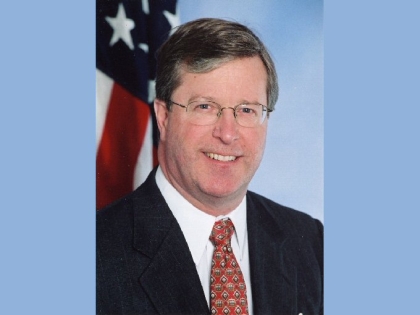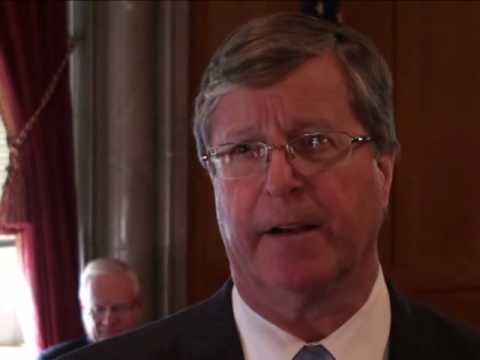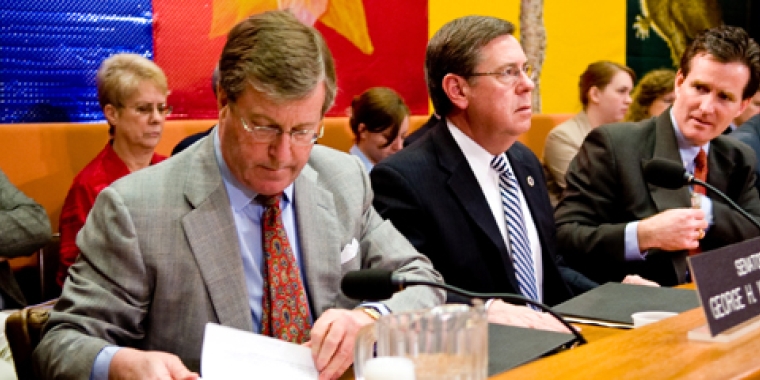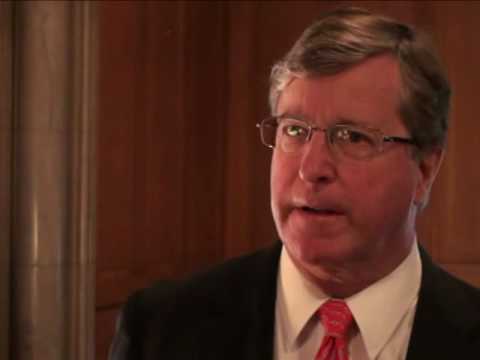
Senate Approves Plan To Help Curb Energy Costs For Motorists, Seniors

Albany, N.Y., January 31- Gas prices were fast approaching $3 a gallon last September when the New York State Senate convened a special legislative session to approve a plan to cap the state and local sales taxes on gasoline, and help fixed-income seniors better afford this winter's home heating costs. The Senate's September energy plan received a cold shoulder from state Assembly leaders, but with energy expenses higher than ever and gas prices back on the rise Senator George H. Winner, Jr. (R-C, Elmira) and his colleagues today renewed their efforts to enact a comprehensive energy cost relief plan in New York State.
The Legislature and Governor George Pataki recently delivered $100 million in new state aid for the Home Energy Assistance Program (HEAP), which will help provide additional emergency grants to seniors and low-income families. But the Senate hopes to do even more and today approved legislation, co-sponsored by Winner, to provide new energy-related tax relief to small businesses, cap the state and local sales taxes on gasoline and further help seniors afford increased home heating costs.
"New York State can continue to take actions of our own to help address this energy crisis, and the sooner the better. The Senate will do everything we can to keep attention focused on the need for more action to help businesses and consumers hard-pressed to meet rising energy costs," said Winner, a member of the Senate Energy and Telecommunications Committee. "The energy issue isn't going to melt away like snow in spring. I doubt we're going to see lower gas prices by summer, for example. The high cost of energy is here to stay, and we need to keep addressing it as a government."
One new centerpiece of the Senate plan would create a $350 million refundable tax credit program that would help 386,000 eligible small businesses statewide better afford rising energy costs without resorting to job cuts or other business downsizings. Businesses with fewer than 20 employees would be eligible for the assistance. Businesses of this size employ about 1.4 million New Yorkers, and their owners have cited increasing energy costs as one of the biggest challenges in staying competitive.
Under the Senate plan, a credit of two cents per Kilowatt Hour (KwH) would be applied directly to the tax liability of eligible businesses, while businesses that do not owe taxes would receive a rebate check. The benefit level of two cents per KwH approximates the rate benefit provided under the Power for Jobs program, one of the state’s most important economic development programs. The Senate plan excludes businesses that already receive similar benefits through the Empire Zone and Power for Jobs programs. It also excludes sole proprietorships working out of their residence, since it would be difficult to segregate residential electric usage from business usage.
Additionally, the Senate plan continues to focus on two major initiatives:
1.) a cap on the state and local sales tax on gasoline that would save consumers approximately $240 million annually. Winner said that the Senate is proposing to roll back the state and local sales tax on gas and replace it with a fixed state-local levy. The move would provide motorists with an immediate savings on fuel purchased at more than $2 per gallon by capping the sales tax on gasoline at a taxable value of $2 per gallon. Unlike the existing tax, the new levy would not rise as prices increase, thereby eliminating any future tax revenue windfalls to state and local governments. The cap covers the local sales tax on gas unless a local government votes to opt out of it; and
2.) rebate checks to senior citizens to help offset winter heating costs. Specifically, the Senate’s legislation creates a new "Senior Heat" program to provide direct, one-time rebate checks of $200 to provide an estimated $140 million in assistance to at least 640,000 New York seniors, those who are currently eligible for the Enhanced STAR property tax program, in meeting their increased energy bills this winter. Enhanced STAR is available to seniors 65 years and older who own their own homes and earn under $64,500 per year. The Senior Heat program would also provide a $100 refundable state tax credit to eligible senior citizens who rent and pay for their heat.
The Senate energy plan also includes measures to provide a tax credit for the production of bio-fuel products; extend tax credits for the purchase of alternative fuel vehicles; extend property tax exemptions for alternative energy facilities; provide a sales tax exemption on Energy Star products, home insulation and newly installed alternative energy systems; and provide tax credits for the purchase of commercial fuel cell generating equipment.
The Senate plan must be approved by the Assembly and signed by Governor George Pataki before becoming law.



